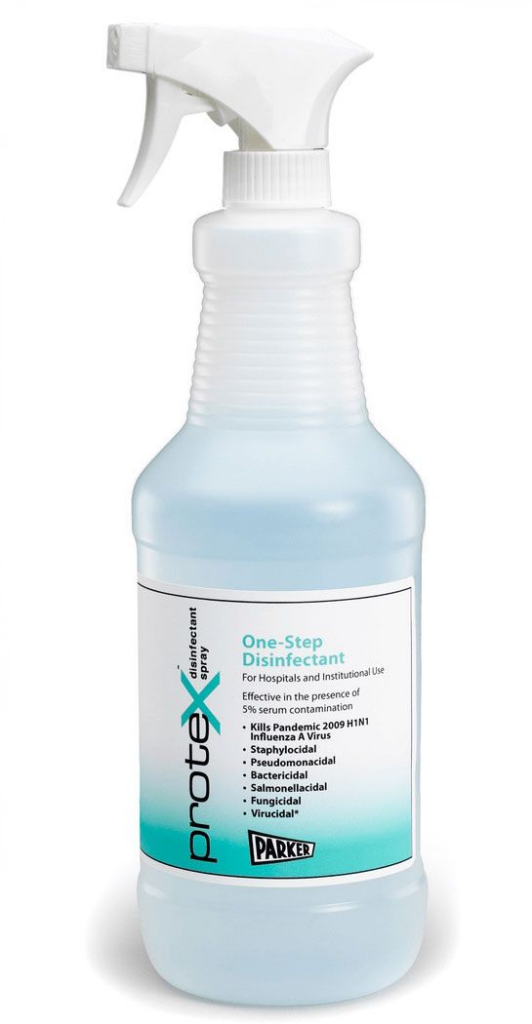
Disinfectant Spray for Professionals: What You Need to Know
Posted by The MassageTools Team on Nov 24th 2023
In today’s world, the importance of maintaining a sterile environment cannot be overstated, especially for professionals in healthcare and physiotherapy. Disinfectant spray for professionals serves as a cornerstone in achieving this objective. This article aims to discuss the types of disinfectant sprays available, their proper use, and why they are indispensable for professionals, particularly physiotherapists.
Table of Contents
Why Disinfectant Spray Is Crucial for Professionals
Disinfectant sprays are more than just aerosol cans that emit a pleasant fragrance. They contain active ingredients designed to eliminate bacteria, viruses, and other harmful pathogens. For professionals in healthcare settings, such as physiotherapy clinics, the need for effective disinfection is paramount to ensure the safety of both practitioners and patients.
Types of Disinfectant Sprays
Alcohol-Based Sprays
Alcohol-based sprays are the most common type and they are particularly effective against a wide range of microorganisms. These sprays are generally safe for surfaces but should be avoided on sensitive equipment, as they can be corrosive.
Quaternary Ammonium Compounds
Commonly known as “quats,” these disinfectants are also effective but are less harsh than alcohol-based sprays. They are often used in environments that require frequent disinfection but without the abrasive effects of alcohol.
How to Use Them Effectively
Using a disinfectant spray may seem straightforward, but there’s more to it than just a quick spritz. To maximize its efficacy, it’s essential to follow the manufacturer’s instructions, which usually include guidelines on how long the spray should remain on a surface before wiping.
Coverage Matters
A common mistake is to not apply enough product, leading to insufficient coverage. When using a disinfectant spray, make sure to thoroughly coat the area you’re treating. This ensures that the active ingredients have ample opportunity to work their magic.
Special Considerations for Physiotherapists
Physiotherapy clinics are unique environments where both manual therapies and equipment are frequently used. This combination necessitates a tailored approach to disinfection. For example, high-touch surfaces such as electric massage tables and exercise equipment require more frequent disinfection compared to less commonly touched objects.
Material Compatibility
Not all disinfectants are suitable for every surface. Physiotherapists need to be cautious about which disinfectants they use on sensitive equipment, as some can cause damage or degradation over time.
Short Contact Time
In a busy clinic, time is of the essence. Opt for disinfectant sprays that have a short contact time to expedite the disinfection process without compromising effectiveness.
The Role of EPA Registration
When it comes to disinfectant sprays, the U.S. Environmental Protection Agency (EPA) plays a crucial role. The agency tests and approves disinfectants to ensure they are both effective and safe for use. For professionals who demand the highest standards, choosing an EPA-registered disinfectant is a prudent step.
EPA Labels and What They Mean
“Hospital Grade”
The term “Hospital Grade” on an EPA label is not just marketing jargon; it signifies that the product has passed specific efficacy tests against hospital-associated pathogens. For healthcare professionals and physiotherapists, this designation offers an added layer of assurance.
Claims and Directions
EPA labels also provide vital information on the types of microorganisms a disinfectant is proven to kill. Professionals should read these labels carefully to ensure the product meets the specific needs of their practice.
Storage and Disposal
Proper storage and disposal of disinfectant sprays are often overlooked, yet they are integral to maintaining a safe work environment. Improper storage can compromise the effectiveness of the disinfectant, while incorrect disposal poses environmental risks.
Shelf Life and Storage Conditions
Most disinfectant sprays come with an expiration date, and using them past this point is not advisable. Additionally, storing these products in a cool, dry place will help maintain their efficacy for longer periods.
Proper Disposal Methods
Disposing of empty disinfectant spray cans should be done in accordance with local regulations. In most cases, they can be recycled. However, partially full cans are considered hazardous waste and should be disposed of properly.
Alternatives and Complementary Products
While disinfectant sprays are widely used, they are not the only option for maintaining a sanitized environment. There are other products and methods that can serve as alternatives or complement your existing disinfection routine.
UV Sterilization
Ultraviolet (UV) sterilization is becoming increasingly popular in healthcare settings. This method uses UV light to kill or inactivate microorganisms and can be a valuable addition to physiotherapy clinics.
Natural Disinfectants
For those interested in greener options, there are natural disinfectants available. While generally less effective against a broad range of pathogens, they can still be a suitable choice for less critical areas.
Product Review and Comparisons: Parker Protex Disinfectant Sprays
When it comes to disinfectant sprays, professionals and physiotherapists often seek products that are both effective and gentle on sensitive equipment. Parker Protex offers two variants that have been catching attention in the market: a 32oz. bottle (Case of 12) and a more compact 12oz. bottle. Let’s delve into the details of these two products to help you make an informed decision.
Parker Protex Disinfectant Spray – 32oz. Bottle (Case of 12)
The 32oz. Parker Protex variant comes in a case of 12 bottles, offering a generous amount of product.
This EPA-approved spray is formulated to kill a wide spectrum of bacteria, viruses, and fungi, including notorious pathogens like MRSA and Coronavirus.
It’s particularly useful for disinfecting nonporous surfaces and medical equipment.
Pricing and Delivery
Originally priced at $179.00, you can now snag a case for $161.10, saving you 10%. Delivery options vary, ranging from Ground Curbside Delivery at $195 to White Glove Delivery at $595, the latter of which includes unpacking and removal of packing materials.
Recommended Usage
This spray is versatile enough for use on various surfaces like metal, stainless steel, and even upholstery made of vinyl and plastic, including professional med spa chair surfaces. It’s also suitable for ultrasound transducers and other sensitive equipment, making it a fit for settings like hospitals, nursing homes, and athletic facilities.
Parker Protex Disinfectant Spray – 12oz. Bottle
The Parker Protex 12oz. bottle offers the same broad-spectrum efficacy against bacteria, viruses, and fungi.
This product is also EPA approved and is presented in a more compact form, ideal for smaller practices or for individual use.
The 12oz. bottle was originally priced at $9.95 but is now available for $8.96, giving you a 10% discount. The delivery options are similar to the 32oz. variant, giving you flexibility based on your needs.
Recommended Usage
Like its larger counterpart, the 12oz. spray is versatile and can be used on a range of hard, nonporous surfaces. It is ideal for smaller healthcare facilities and is also portable enough for emergency vehicles and locker rooms.
Side-by-Side Comparison
Efficacy
Both variants offer the same level of efficacy against a wide range of pathogens. They are both EPA approved and can be used on multiple types of surfaces.
Volume and Pricing
The 32oz. bottle provides more volume and is suitable for larger facilities or for those who require a bulk supply. The 12oz. bottle, on the other hand, offers portability and is budget-friendly for smaller setups.
Delivery Options
Both products offer the same delivery options, ranging from curbside to white glove delivery. Your choice will depend on your specific needs and budget constraints.
Versatility
Each variant is versatile in its application, making both suitable for different healthcare environments, whether it’s a large hospital or a small physiotherapy clinic.
Wrapping Up
Understanding the nuances of disinfectant sprays, from EPA regulations to storage and disposal, can significantly enhance the safety protocols in a professional setting. The key lies in being informed and making choices that align with the specific requirements of your practice. Whether you’re a healthcare provider or a physiotherapist, the right disinfectant can make all the difference in ensuring a safe and sterile environment.





